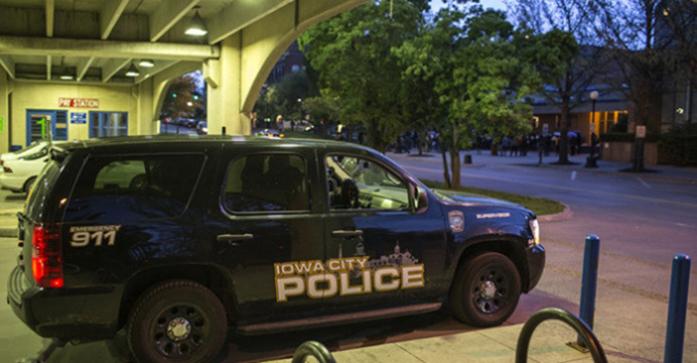Joe Lane
[email protected]
For many of the police departments of the United States, 2015 has been chaotic. Between reports of unnecessary force and the rapid expansion of the Black Lives Matter group, known for expressions like, “No justice. No peace. Prosecute the police,” police have been called into question on numerous occasions recently.
The Iowa City’s police have not been immune to scrutiny over the past year, though I personally hadn’t found a reason to be disappointed in the organization until this past week. After all, what could be so bad about the group that frequently published tweets light-heartedly bashing Iowa State? But some of the practices of the Iowa City police have left me confused and conflicted.
Last week, The Daily Iowan reported what could only be described as a feel-good story about the police of Iowa City.
According to the article, David Schwindt, the downtown beat officer for Iowa City police, said about the individuals downtown, “If I walk by and someone has an open container, and I say something and then walk by later, and they still have it, then I’ll have to ticket them.”
Schwindt went on to say, We don’t want to write tickets and make income for the city off of that.
wWhile Schwindt comments refer to the forgiving nature of the Iowa City police, many students may not necessarily agree.
For example, about one month ago, a UI freshman was charged with public intoxication and arrested for disorderly conduct, according to numerous sources including the UK’s Daily Mail.
The incident occurred when the student asked officers for a ride back to his dorm and, after being denied, attempted to get into the back of the police car anyway. Simply reading this scenario, it would seem that the student’s actions merited the punishment he received. And, before any further comments are made, it is important to note that I was not a witness to the event and, therefore, cannot accurately comment on the way in which the scenario unfolded. Furthermore, getting into the back of a cop car (even as a joke) is extremely inappropriate. However, there are some important things to note, regardless of the way this student was acting that night.
Public intoxication is, and always will be, a difficult crime to address — particularly on college campuses. And while it is not the responsibility of the Iowa City police to pay for taxis or use taxpayer dollars to drive a drunken student back to their residence hall, arresting the student is probably not the best practice, either.
If the mission of every police department across the country is “To Protect and Serve,” then failing to ticket or provide a ride for an intoxicated individual is also failing the mission.
However, according to my definition of “protect” providing a quick ride to a residence hall would prove far more reasonable than ticketing a student after denying him a ride.
I don’t claim to know how the police should have handled the scenario, and I don’t even want to claim that the Iowa City police are doing a bad job — because they really aren’t. However, Iowa City cannot operate with conflicting messages: arrest students for public intoxication and let others go with a warning about open container.










